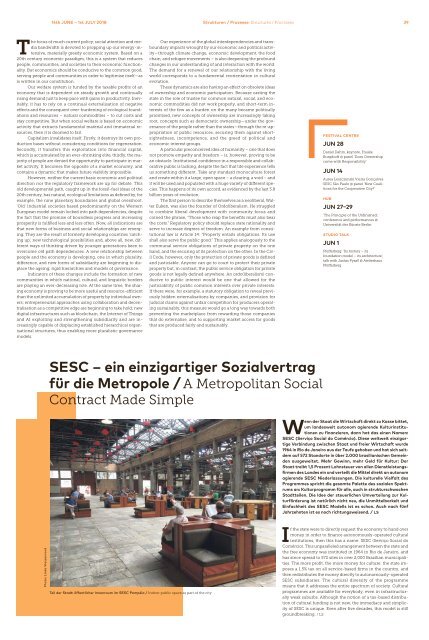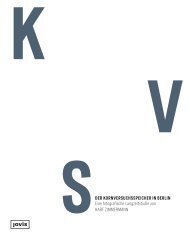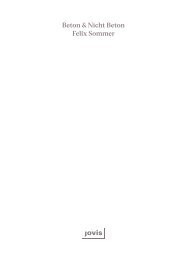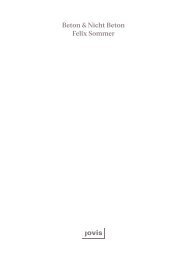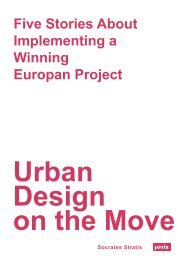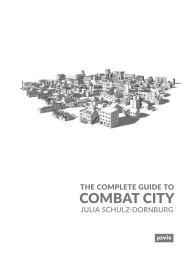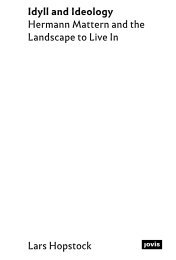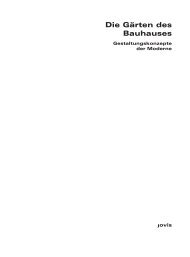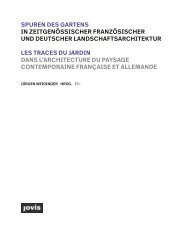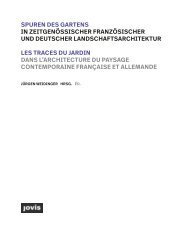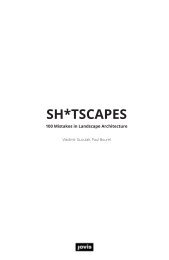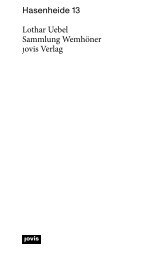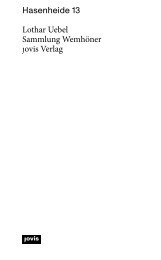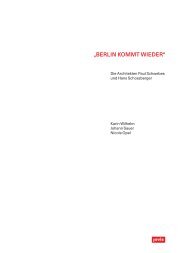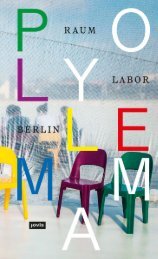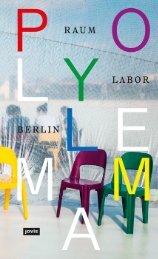Make City 2018 Festival - Newspaper
You also want an ePaper? Increase the reach of your titles
YUMPU automatically turns print PDFs into web optimized ePapers that Google loves.
14th JUNE – 1st JULY <strong>2018</strong> Strukturen / Prozesse Structures / Processes 39<br />
The focus of much current policy, social attention and media<br />
bandwidth is devoted to propping up our energy-intensive,<br />
materially greedy economic system. Based on a<br />
20th century economic paradigm, this is a system that reduces<br />
people, communities, and societies to their economic functionality.<br />
But economics should be conducive to the common good,<br />
serving people and communities in order to legitimise itself—as<br />
is written in our constitution.<br />
Our welfare system is funded by the taxable profits of an<br />
economy that is dependent on steady growth and continually<br />
rising demand just to keep pace with gains in productivity. Inevitably,<br />
it has to rely on a continual externalisation of negative<br />
effects and the consequent over-burdening of ecological foundations<br />
and resources – natural commodities – to cut costs and<br />
stay competitive. But when social welfare is based on economic<br />
activity that extracts fundamental material and immaterial resources,<br />
then it is doomed to fail.<br />
Capitalism invalidates itself. Firstly, it destroys its own production<br />
bases without considering conditions for regeneration.<br />
Secondly, it transfers this exploitation into financial capital,<br />
which is accumulated by an ever-shrinking elite, thirdly, the majority<br />
of people are denied the opportunity to participate in market<br />
activity. It becomes the opposite of a market economy, and<br />
contains a dynamic that makes future viability impossible.<br />
However, neither the current basic economic and political<br />
direction nor the regulatory framework are up for debate. This<br />
old developmental path, caught up in the fossil-fuel ideas of the<br />
20th century, has natural, ecological limitations as defined by, for<br />
example, the nine planetary boundaries and global overshoot.<br />
’Old‘ industrial societies based predominantly on the Western<br />
European model remain locked into path dependencies, despite<br />
the fact that the promise of boundless progress and increasing<br />
prosperity is fulfilled less and less often. Now, all indications are<br />
that new forms of business and social relationships are emerging.<br />
They are the result of formerly developing countries ’catching<br />
up‘, new technological possibilities and, above all, new, different<br />
ways of thinking driven by younger generations keen to<br />
overcome old path dependencies. A new relationship between<br />
people and the economy is developing, one in which plurality,<br />
difference, and new forms of subsidiarity are beginning to displace<br />
the ageing, rigid hierarchies and models of governance.<br />
Indicators of these changes include the formation of new<br />
communities in which national, cultural, and linguistic borders<br />
are playing an ever-decreasing role. At the same time, the sharing<br />
economy is proving to be more useful and resource-efficient<br />
than the unlimited accumulation of property by individual owners;<br />
entrepreneurial approaches using collaboration and decentralisation<br />
as a competitive edge are beginning to take hold; new<br />
digital infrastructures such as blockchain, the Internet of Things<br />
and AI exploiting and strengthening subsidiarity and are increasingly<br />
capable of displacing established hierarchical organisational<br />
structures, thus enabling more pluralistic governance<br />
models.<br />
Our experience of the global interdependencies and transboundary<br />
impacts wrought by our economic and political activity—through<br />
climate change, economic development, the food<br />
chain, and refugee movements – is also deepening the profound<br />
changes in our understanding of and interaction with the world.<br />
The demand for a renewal of our relationship with the living<br />
world corresponds to a fundamental reorientation in cultural<br />
evolution.<br />
These dynamics are also having an effect on obsolete ideas<br />
of ownership and economic participation. Because casting the<br />
state in the role of trustee for common natural, social, and economic<br />
commodities did not work properly, and short-term interests<br />
of the few as a burden on the many became politically<br />
prioritised, new concepts of ownership are increasingly taking<br />
root, concepts such as democratic ownership—under the governance<br />
of the people rather than the states—through the re-appropriation<br />
of public resources, securing them against shortsightedness,<br />
incompetence, and the greed of political and<br />
economic interest groups.<br />
A particular preconceived idea of humanity – one that does<br />
not promote empathy and freedom – is, however, proving to be<br />
an obstacle. Institutional confidence in a responsible and collaborative<br />
public is lacking, despite the fact that life experience tells<br />
us something different. Take any standard monoculture forest<br />
and create within it a large, open space – a clearing, a void – and<br />
it will be used and populated with a huge variety of different species.<br />
This happens of its own accord, as evidenced by the last 3.8<br />
billion years of evolution.<br />
The first person to describe themselves as a neoliberal, Walter<br />
Euken, was also the founder of Ordoliberalism. He struggled<br />
to combine liberal development with community focus and<br />
coined the phrase, “Those who reap the benefits must also bear<br />
the costs.” Regulatory policy should replace state rationality and<br />
serve to increase degrees of freedom. An example from constitutional<br />
law is Article 14: “Property entails obligations. Its use<br />
shall also serve the public good.” This applies analogously to the<br />
communal service obligations of private property on the one<br />
hand, and the securing of its protection on the other. In the Civil<br />
Code, however, only the protection of private goods is defined<br />
and justiciable. Anyone can go to court to protect their private<br />
property but, in contrast, the public service obligation for private<br />
goods is not legally defined anywhere. An ordo(liberalism) conducive<br />
to public interest would be one that allowed for the<br />
justiciability of public common interests over private interests.<br />
If there were, for example, a statutory obligation to reveal previously<br />
hidden externalisations by companies, and provision for<br />
judicial claims against unfair competition for producers operating<br />
sustainably, this measure would go a long way towards both<br />
preventing the marketplace from rewarding those companies<br />
that do externalise, and to supporting market access for goods<br />
that are produced fairly and sustainably.<br />
FESTIVAL CENTRE<br />
JUN 28<br />
Daniel Dahm, keynote, Frauke<br />
Burgdorff @ panel ’Does Ownership<br />
come with Responsibility‘<br />
JUN 14<br />
Aurea Leszczynski Vieira Gonçalves<br />
SESC São Paulo @ panel ’New Coalitions<br />
for the Cooperative <strong>City</strong>?‘<br />
HUB<br />
JUN 27–29<br />
’The Principle of the Unfinished‘,<br />
conference and performances @<br />
Universität der Künste Berlin<br />
STUDIO TALK<br />
JUN 1<br />
Pfefferberg: ’Its history – its<br />
foundation model – its architecture‘,<br />
talk with Justus Pysall @ Atelierhaus<br />
Pfefferberg<br />
SESC – ein einzigartiger Sozialvertrag<br />
für die Metropole / A Metropolitan Social<br />
Contract Made Simple<br />
Wenn der Staat die Wirtschaft direkt zu Kasse bittet,<br />
um landesweit autonom agierende Kulturinstitutionen<br />
zu finanzieren, dann hat das einen Namen:<br />
SESC (Serviço Social do Comércio). Diese weltweit einzigartige<br />
Verbindung zwischen Staat und freier Wirtschaft wurde<br />
1964 in Rio de Janeiro aus der Taufe gehoben und hat sich seitdem<br />
auf 572 Standorte in über 2.000 brasilianischen Gemeinden<br />
ausgeweitet. Mehr Gewinn, mehr Geld für Kultur: Der<br />
Staat treibt 1,5 Prozent Lohnsteuer von allen Dienstleistungsfirmen<br />
des Landes ein und verteilt die Mittel direkt an autonom<br />
agierende SESC Niederlassungen. Die kulturelle Vielfalt des<br />
Programmes spricht die gesamte Palette des sozialen Spektrums<br />
an: Kulturprogramm für alle, auch in strukturschwachen<br />
Stadtteilen. Die Idee der steuerlichen Umverteilung zur Kulturförderung<br />
ist natürlich nicht neu, die Unmittelbarkeit und<br />
Einfachheit des SESC Modells ist es schon. Auch nach fünf<br />
Jahrzehnten ist es noch richtungsweisend. / LS<br />
Photo: Linda Vlassenrood<br />
Teil der Stadt: öffentlicher Innenraum im SESC Pompéia / Indoor public space as part of the city<br />
If the state were to directly request the economy to hand over<br />
money in order to finance autonomously-operated cultural<br />
institutions, then this has a name: SESC (Serviço Social do<br />
Comércio). This unparalleled arrangement between the state and<br />
the free economy was instituted in 1964 in Rio de Janeiro, and<br />
has since spread to 572 sites in over 2,000 Brazilian municipalities.<br />
The more profit, the more money for culture: the state imposes<br />
a 1.5% tax on all service-based firms in the country, and<br />
then redistributes the money directly to autonomously-operated<br />
SESC subsidiaries. The cultural diversity of the programme<br />
means that it addresses the entire spectrum of society. Cultural<br />
programmes are available for everybody, even in infrastructurally<br />
weak suburbs. Although the notion of a tax-based distribution<br />
of cultural funding is not new, the immediacy and simplicity<br />
of SESC is unique. Even after five decades, this model is still<br />
groundbreaking. / LS


